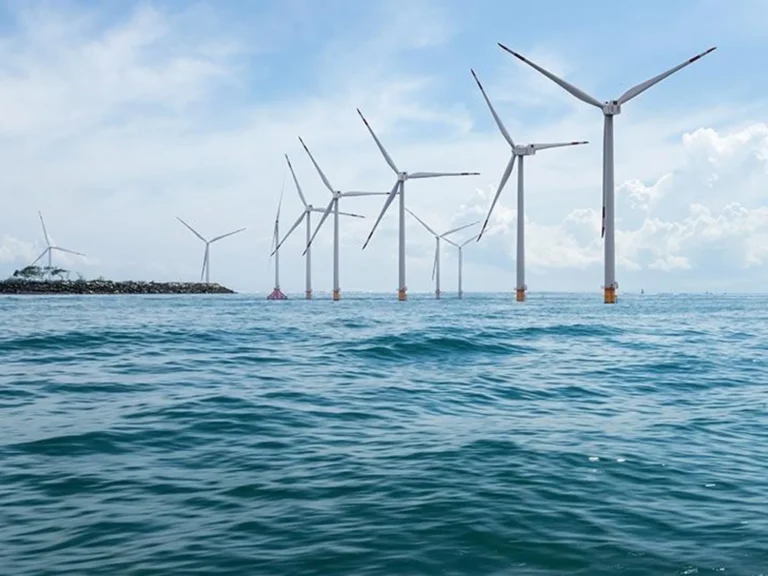With renewables, the EU exchanges dependence on Russia for that on China

The EU, with the decisions taken in the last mandate by the Commission, risks not improving European energy independence, simply replacing that from Russian or Middle Eastern oil and gas with that from Chinese technologies and rare earths. Indeed, objectively, the dependence would be even more concentrated.
The EU is sticking to its net zero emissions targets and the European Parliament has just approved much higher binding targets for renewable energy by 2030 by passing the Renewable Energy Directive, a key part of the European Green Deal for the EU become a zero-carbon country. block by 2050.
The directive, which needs approval from EU member states to become law, increases the target share of renewable energy in EU energy consumption to 42.5% by 2030, up from the current target of 32%.
For comparison, renewable energy accounted for 21.8% of energy consumed in the EU in 2021, down from 22.1% in 2020, according to Eurostat.
As Europe now pushes to reduce emissions and accelerate the deployment of renewable energy and electric vehicles, a new threat has emerged in its supply chain: over-reliance on critical Chinese materials, lithium-ion batteries, solar panels and wind turbines.
The EU is trying to keep domestic production in the green energy supply chain, but is currently failing in this objective as cheap Chinese products and the US Inflation Reduction Act could take away Europe's competitiveness if the bloc does not take measures to strengthen it.
“ Without the implementation of strong measures, by 2030 the European energy ecosystem could have a dependence on China of a different nature, but with a similar severity, than it had on Russia before the invasion of Ukraine “, says a document drafted by the rotating Spanish Presidency for an EU summit in early October, as cited by Reuters.
The document obtained by Reuters expresses concern that with green energy and net zero emissions targets, EU demand for lithium-ion batteries, green hydrogen electrolysers and fuel cells would increase by 10 to 30 times in the next years, and China could play an important role in these supply chains.
Last week, European Commission President Ursula von der Leyen denounced China for its unfair trade practices in the solar panel supply chain.
“We have not forgotten how China's unfair trade practices have affected our solar industry. Many young businesses have been driven out by heavily subsidized Chinese competitors. Pioneering companies had to declare bankruptcy. The most promising talents have gone to seek their fortunes abroad,” von der Leyen said in the EU State of the Union Address.
In the electric vehicle sector, global markets are now flooded with cheaper Chinese electric cars, distorting competition, he noted, adding that the Commission is launching an anti-subsidy investigation into electric vehicles from China.
“Europe is open to competition. Not in a race to the bottom,” said the Commission President.
European industry associations also call for support and welcome the EU's efforts to strengthen national manufacturing supply chains.
The WindEurope association, for example, said last week that unless the EU changes its policies, it could lose European production.
“ And difficulties in Europe's wind supply chain mean that Chinese turbine makers are starting to get orders here. They offer cheaper turbines, more flexible standards and unconventional financial terms,” said WindEurope, commenting on von der Leyen's speech.
“ There is a very real risk that the expansion of wind energy will happen in China and not in Europe .”
In reality, as shown by the Siemens Gamesa case, at the base there is also an unpreparedness of the European industry, which grew with secure contracts and without sufficient competition to increase size, efficiency and profitability in a combined way. In the end, at the first difficulty, the large oligopolistic groups proved to be inadequate in the face of international competition.
Days before the state of the union speech, the SolarPower Europe association warned that Europe's record solar energy import prices risk undermining the EU's strategic autonomy goals and driving more European manufacturers into bankruptcy.
“Right now, we risk losing a key strategic sector in Europe, precisely at the moment when the geopolitics of the energy transition requires supply chain diversification and a revival of the European solar manufacturing sector,” SolarPower Europe wrote in a letter to EU summits. institutions.
If European producers fail, renewable energy will remain a prerogative only of China and its supplies. The EU will not be dependent on Arabia and Russia, but will become dependent on the Chinese superpower
Not exactly a step forward.

Thanks to our Telegram channel you can stay updated on the publication of new Economic Scenarios articles.
The article With renewables the EU exchanges dependence on Russia for that on China comes from Economic Scenarios .
This is a machine translation of a post published on Scenari Economici at the URL https://scenarieconomici.it/con-le-rinnovabili-la-ue-scambia-la-dipendenza-dalla-russia-con-quella-dalla-cina/ on Tue, 19 Sep 2023 17:06:56 +0000.
